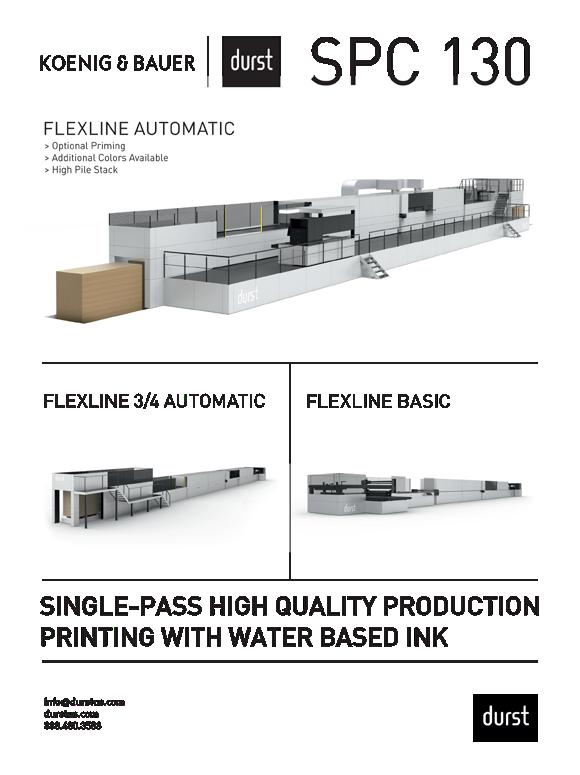
3 minute read
LEGISLATIVE REPORT
–$14,000
–$14,500
Advertisement
–$15,000
–$15,500
–$16,000
–$16,500
–$17,000
–$17,500
–$18,000
–$18,500
Trade Balance for Beverages
($ Millions) 2017 2018 2019 2020
–$15,329
–$15,972
–$17,886 –$17,455
The result of these changes was that the trade deficit increased by $2.2 billion, or 14.4%, since 2017.
While numerous other factors affect the size of markets available to independent producers of paper-based packaging, imports and exports of packageable goods are major factors contributing to the persistent lag between the regular growth in domestic consumption of food, produce, and beverages and the consistently less rapid growth of domestic production of these goods.
Dick Storat is president of Richard Storat & Associates. He can be reached at 610-282-6033 or storatre@aol.com.
See How You Stack Up
Learn more at www.AICCbox.org/Store
AICC Signs Letter to Congress Opposing Limits to Interest Expense Deductions
BY ERIC ELGIN
Afew months ago, AICC President Michael D’Angelo wrote in his “Final Score” column about your Association’s ongoing work with business coalitions to advocate on behalf of small and medium-size companies such as AICC members. (See “The Accidental Advocate,” BoxScore, September/October 2020, p. 72.) Since AICC is not large enough to have a dedicated government affairs presence before the federal government, it just makes sense to work in coalition with larger business groups that do.
A recent example of this work concerns a critical provision from the 2017 tax reform law that will expire at the end of 2021, potentially increasing taxes on businesses and making it more expensive to finance equipment purchases and other capital-intensive projects. I’m referring to the provision that allowed companies to take a tax deduction of up to 30% of their earnings before interest, taxes, depreciation, and amortization (EBITDA). Starting in 2022, the limit will be 30% of earnings before interest and tax (EBIT) only. By excluding depreciation and amortization, the stricter EBIT standard will limit the size of the potential deduction, which will increase taxes on businesses and make financing equipment purchases more expensive. According to an analysis conducted by the consulting firm PwC and commissioned by the National Association of Manufacturers, the average business impacted by the change will see a three-fold increase in their incremental tax obligations.
I’m not an accountant, and so I’ll leave the technicalities to the professionals. But as I see it, when the EBIT standard takes effect in 2022, capital-intensive businesses such as ours will see an increase in their tax liability and financing costs. The lowered limitation will make it more difficult for those of us who own businesses to raise capital, hire new workers, and grow. The reduction in flexibility and liquidity caused by the change will also harm businesses’ ability to recover from the economic damage caused by COVID-19. All of us are seeing rising costs across the board, from raw materials to labor, as we struggle to attract workers to our businesses. Do we really need our government adding to this increasingly heavy burden?
The letter to Congress signed by AICC and more than 110 other associations says, “We respectfully encourage you to support investment and job growth at capitalintensive businesses across the country by permanently preserving an EBITDA standard for business interest deductions.”
I encourage you to do the same. You can find the contact information for your U.S. senators at www.senate.gov and your representatives in the House of Representatives at www.house.gov.

Eric Elgin is owner of Oklahoma Interpak and chairman of AICC’s Government Affairs subcommittee. He can be reached at 918-687-1681 or eric@okinterpak.com.










